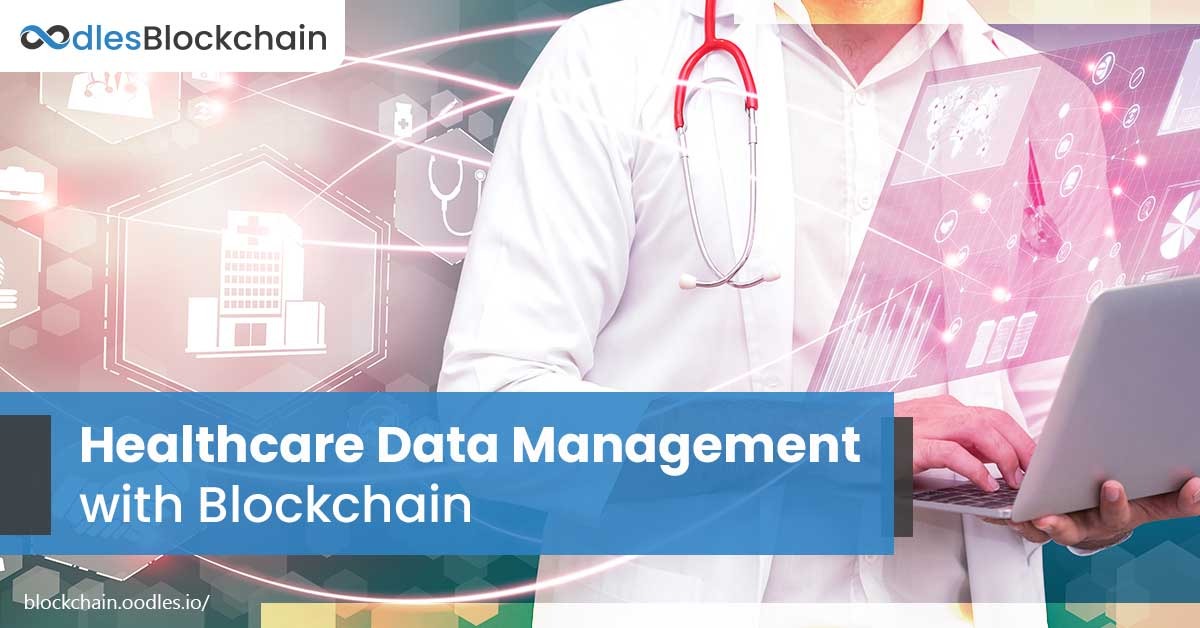The response by healthcare organizations like WHO and governments to COVID-19 emphasizes the need of strengthening healthcare data management and infrastructure. It necessitates the need to explore blockchain healthcare solutions for secure and accurate information sharing among all participants. At Oodles, we have observed over the last three months the importance of fast, efficient, and secure sharing and reporting of scientific data.  Using blockchain for healthcare data management solutions, organizations can facilitate comprehensive understanding and prevention of such global outbreaks. Concurrently, they can enable healthcare stakeholders with improved healthcare experience. Indeed, blockchain healthcare application development can drive healthcare entities toward finding the best course of action using data.
Using blockchain for healthcare data management solutions, organizations can facilitate comprehensive understanding and prevention of such global outbreaks. Concurrently, they can enable healthcare stakeholders with improved healthcare experience. Indeed, blockchain healthcare application development can drive healthcare entities toward finding the best course of action using data.
Healthcare Data Management Limitations
In such precarious situations, the overflow of information suggests that the current healthcare technologies and infrastructures are currently not in place. They are not up to the job, with limitations in areas like full interoperability, reliability, and security of healthcare data. Sequentially, they fail to provide an accurate understanding of healthcare conditions and requirements at a local level.` Introducing blockchain solutions for healthcare data management can address these limitations.
Workings of Blockchain
Blockchain is a distributed, peer-to-peer ledger technology with three major components:
Distributed network
The shared P2P system includes network user nodes where each member holds an equivalent blockchain copy and can verify and approve distributed network transactions.
Shared ledger
The shared ledger records all digital transactions accessible by all network members. They perform algorithms and test the proposed transactions. Once a majority of members validate the transaction, the shared ledger adds it into the blockchain database,
Digital transactions
Any information or digital assets recorded on a blockchain can qualify as a digital transaction. Each ‘block’ in the chain organizes each transaction and each block includes a cryptographic hash to provide a sequential, temporal order to the transactions.
Blockchain’s Impact on Healthcare Data Management
Traditional healthcare systems generally have critical information scattered across multiple systems, and may not be accessible at necessary times. Essentially, the current healthcare infrastructure is inadequate to handle the exchange of information and requires some tweaks. According to the most recent Gartner Hype Cycle, Blockchain has gone beyond the “innovation trigger” and is at the “peak of inflated expectations.” It can transform how we view healthcare and data together.
One of the biggest things in our opinion is making the use of blockchain in healthcare is replacing the centralized administrator. A centralized database is indeed something real- composed of bits and bytes. Anyone that has access to that device may corrupt the data inside.
There will be no need for a central administrator for blockchain— eliminated by clever cryptography. Additionally, all users are in command of both their transactions and records. Since healthcare maintains private patient information and needs easy access to details, blockchain will streamline these medical records and enable secure access to those records. Blockchain provides control of entry, scalability, and data protection in one go.
The idea of blockchain in healthcare is completely revolutionary-but it ‘s not going to be an elixir to drown out the data processing problems. However, it will be an evolutionary process where we need to introduce it step-by-step.
























